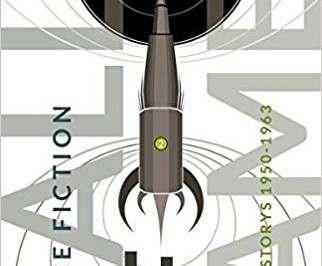Ein Blick in die Kristallkugel: Unser „USA-Korrespondent“, der Autor und „Edgar“-Preisträger Thomas Adcock, wagt einen Blick auf die Entwicklung zentraler Aspekte und Themen der amerikanischen Politik und Gesellschaft im Jahr 2013. Setzt sich die Spaltung des Landes weiter fort? Wie sieht die Zukunft der Tea-Party aus und ihrer teilweise absurd argumentierenden Vertreter aus? Wie entwickelt sich der Finanzsektor? Kommt es tatsächlich zu einer wirkungsvollen Reform der Waffengesetze? Und: Wir geht’s weiter mit dem „War on Terror“? Lesen Sie Prognosen und Hintergründe zu aktuellen Themen der amerikanischen Gegenwart (Teil 1).
IMAGES in the American New Year. Top row, from top left: lunatic Republican Congresswoman Michelle Bachmann, obese radio propagandist Rush Limbaugh, blowhard faux billionaire Donald Trump. Middle row, from left: gun fetishist Wayne La Pierre, champion of immigrant rights, climate change victim, hatemonger James Dobson. Bottom row (from left): a plea for civility, Huey P. Newton, MQ-9 predator drone.
America in 2013: Toward a ‘More Perfect’ Union?
NEW YORK — As usual here in the United States, the dawn of a New Year gives pause to once again marvel at the modernity of Charles Dickens’ masterwork of 1859, “A Tale of Two Cities.” Although set in London and Paris prior to and during the French Revolution, the novel’s opening sentence perfectly describes the American Zeitgeist:
“It was the best of times, it was the worst of times, it was the age of wisdom, it was the age of foolishness, it was the epoch of belief, it was the epoch of incredulity, it was the season of Light, it was the season of Darkness, it was the spring of hope, it was the winter of despair, we had everything before us, we had nothing before us, we were all going direct to Heaven, we were all going direct the other way…”
Seventy years before Mr. Dickens published those words, America’s founding fathers likewise noted the contradictory fundamentals of my country—interpreted as “half-brother to the world, with something good and bad from every land” by the English poet Philip James Bailey (1816-1902). Seized by such mingled national spirit, the otherwise well-spoken colonial aristocrats who authored the U.S. Constitution opened their own masterwork with a curiously ungrammatical statement of societal purpose: “We, the People of the United States, in Order to form a more perfect Union…”
Each January thereafter, we the People have contemplated this inscrutable proposition by engaging in the sport of yearly predictions—for better or for worse, and with an understanding that today’s circumstances may have little or nothing to do with tomorrow’s.
In looking forward, I consider myself as generally optimistic. I have consulted three personal friends—learned professors all: Victor Goode , Wayne Shelton, and Maurice Berger—to help me pull up a crystal ball picture of America for this unfolding year of 2013.
Accordingly, and categorically:
I. The ‘War on Terror’
In this area lies hope and despair, à la Charles Dickens.
On the upside, President Barack Obama has nominated John Kerry and Chuck Hagel to be America’s next secretaries of state and defense, respectively. These two—Mr. Kerry, a U.S. Senator of the Democratic Party; Mr. Hagel, a former U.S. Senator of the Republican Party—are demonstrably unlike the carnival of torture-friendly right-wing ideologues, corporate shills, and draft-dodgers who served the previous White House.
Those in service to the clueless George W. Bush led him through a bungled manhunt for the late Usama bin Laden, thence through a maze of lies and grandiose notions of global statecraft resulting in the U.S.-led invasion and occupation of Iraq. In that incursion, at least 110,937 (and as many as 121,228) civilians were killed, according to documentation by the British nongovernmental organization Iraq Body Count.
Well, but too bad for Iraqi non-combatants in the wrong place at the wrong time. As it was said by the stupendously callous Donald Rumsfeld, Mr. Bush’s secretary of defense, “Stuff happens.”
For his part, Mr. Bush was consumed by larger vision: a righteous struggle that he christened The War on Terror. As if the mightiest, most technologically advanced military force in today’s world would logically commit to warring against an old tactic. (American colonists of the eighteenth century relied on fleet-footed farm boys to terrorize the incommensurate military power of Britain. Among other nasty sorties, the farm boys sneaked into British encampments in the dead of night to quietly slashed a throat or two then slip away, thus providing a grisly morning message to those fortunately awake.)
Most prominent among the Bush puppeteers, propagandists and phrase-makers were former Vice President Dick Cheney, staunch defender of “enhanced interrogation” and multi-millionaire boss of the war profiteering Halliburton Corporation; Mr. Rumsfeld, who like Mr. Cheney wriggled out of military duty in the 1960s and ‘70s; and former Secretary of State Condoleezza Rice, the scowling namesake of a double-hulled oil tanker owned by the Chevron Corporation.
By contrast, Messrs. Kerry and Hagel are highly decorated veterans of the Vietnam War. Never mind the medals and ribbons, each man recognizes Vietnam as a gross misadventure in the stinking, shrieking, shameful horror of young men and women conscripted by Washington politicians for the dirty work of killing young men and women in far off lands; in the case of Vietnam, the very, very young.
While Mr. Obama made good on his campaign promise of 2008 to extricate combat troops from Iraq, among this era’s gross misadventures, the U.S. remains mired in Afghanistan—until full cessation there no later than December 2014, as he currently pledges. America’s intervention, begun in 2001 in the midst of an Afghan civil war, is the longest military engagement in U.S. history. At $6.7 billion per month (€5.08 billion), according to figures grudgingly released to U.S. media by the Defense Department, it is also the most expensive.
The New York Times famously observed, Afghanistan has been “the graveyard of empires” since ancienneté; here, the people of the world may see potential for celebrating the incipient demise of American hegemony. In a 2010 interview with Vietnam Magazine, Mr. Hagel offered a refreshingly anti-Rumsfeldian take on empire-quashing quagmires dating back to Genghis Khan: “The reason we’re losing Afghanistan is that it wasn’t ours to win or lose. After ten years…what are we going to have when we get out? What have we done?”
Mr. Kerry’s contribution to rationality came much earlier.
As an executive committee member of Vietnam Veterans Against the War, which he helped create, he testified before the Senate Foreign Relations Committee in 1971. Mr. Kerry spoke of what Messrs. Cheney and Rumsfeld do not understand, nor care to respect if they could: how war can turn warriors to butchers, how American soldiers “raped, cut off ears, cut off heads.”
“I’m not a pacifist; I believe in using force, but only after following a very careful decision-making process,” Mr. Hagel said further in his magazine interview. With reference to shrapnel that remains in his chest, and the night in April 1968 when he rescued a comrade from certain battlefield death (his own brother), he added, “I told myself: If I ever get out of this, and if I’m ever in a position to influence policy, I will do everything I can to avoid needless, senseless war.”
As mentioned, I am generally an optimist. My friend Victor Goode, however—noted civil rights litigator, and a professor at the City University of New York School of Law—disagrees with my sunny tendency. Mr. Goode is African American, and, therefore, unquestionably proud of the country’s election of its first black president. But pride does not blind this professor. Undoubtedly, he subscribes to a patriotic philosophy best articulated by James Baldwin (1924-1987), the Harlem-born novelist: “I love America more than any other country in the world. And, for exactly this reason, I insist on the right to criticize her perpetually.”
Thus does Mr. Goode find disappointment in the administration’s military policy at this point in time: “We’re still spending $700 billion (€530 billion) on defense,” he said, “and we have a thousand [military] bases around the world—with no serious discussion about national defense issues that supposedly justify these costs.”
Indeed, there are grounds for even more pessimism.
Consider the “secret” war in Pakistan, an oxymoron inspired by scant U.S. press coverage of deadly attacks by MQ-9 predator drones over Waziristan, a mountainous region at the border of Afghanistan. The drones—unmanned flying robots under the remote control of computer technicians safely removed from stinks and shrieks—are meant to strike “militants.” This is a Pentagon term of art—parroted in the corporate media—for practically anyone with a gun opposed to the corrupt government of Afghan President Hamid Karzai and his brother, Ahmed Wali, kingpin of the country’s booming opium trade.
The New York-based Council on Foreign Relations estimates about three hundred drone attacks authorized by Mr. Obama since taking office in January 2009. Add to that an unknown number of “kill lists” that seldom spares the innocent. Reuters, the British news service, reports death by drones as “dramatically increased” since ‘09.
In May 2010 during a White House banquet for journalists, Mr. Obama thought it comical to conflate high-flying terror and his daughters’ crush on the Jonas Brothers, a trio of teeny-bopper rock idols: “Sasha and Malia are huge fans. But boys, don’t get any ideas,” said the commander in chief. “Two words for you: predator drones. You will never see it coming.”
In September 2011, Mr. Obama personally ordered an MQ-9 hit on a U.S. citizen living in Yemen—the late Anwar al-Awlaki, age forty. The president, by profession a constitutional law professor, held a news conference to assure the public that Mr. Awlaki was a terrorist. Not an “alleged terrorist,” mind you, for in this case Mr. Obama served as prosecutor, judge, and jury—contrary to the Constitution’s Fifth Amendment guarantee of due process of law to American citizens, even the most odious.
Journalist Daniel Klaidman, in speaking of the Awlaki hit in his book “Kill or Capture,” reported that the president told Central Intelligence Agency accessories, “I want Awlaki. Don’t let up on him.” Steve Coll of the New Yorker magazine said this might well have been “the first instance in American history of a sitting president speaking of his intent to kill a particular U.S. citizen without that citizen having been charged formally with a crime or convicted at trial.”
Besides Pakistan, drones have been sent on kill missions to Somalia and Yemen. In the latter country, the attacks have backfired—this according to Gregory D. Johnsen, formerly a Fulbright Fellowship scholar in Yemen and currently a Fulbright-Hays scholar in Egypt. “In Yemen,” Mr. Johnsen recently told an academic audience in Washington, “al-Qaeda is actually expanding.”
Reuters tallies at least ten drone attacks so far this month, suggesting another dramatic increase for 2013. Meanwhile, the rate of White House apologies for “collateral damage”—another term of art, this time for civilian deaths or, more gently, “casualties”—continues apace.
According to a February 2012 study jointly conducted by Stanford Law School and New York University’s School of Law, “the number of ‘high-level’ targets killed as a percentage of total casualties is extremely low—about two percent.”
The report said government claims that drone strikes produce “zero to few civilian casualties” is false, and that the U.S. makes “efforts to shield the drone program from democratic accountability.” Clive Stafford Smith, founder and director of the London-based Reprieve, which advocates for the integrity of international law, said of the Stanford/NYU study:
“An entire region is being terrorized by the constant threat of death from the skies. Their way of life is collapsing. Kids are too terrified to go to school, adults are afraid to attend weddings, funerals, business meetings, or anything else that involves gathering in groups. Yet there is no end in sight.”
By way of response, Mr. Obama told a reporter for the CNN television network that the use of drones was “something that you have to struggle with.” The man who helped the president struggle was John Brennan, national security advisor. This month, the president put Mr. Brennan’s name in nomination for a significant job promotion—as director of the C.I.A.
PREDICTION: Notwithstanding the dubious wisdom of drone strikes, we Americans shall make hot war no more—perhaps for a generation or two. It simply costs too much, and is profoundly wasteful, politically as well as economically, during a recessionary time when good, well-paying, middle-class jobs are sorely needed. Robert Pollin, a University of Massachusetts economist, recently told the New York Times that for every $1 million [€750,000] of military expenditure, eleven permanent civilian jobs are created. But when the government spends that amount on infrastructure improvement, seventeen jobs are created—double the value. Investment in public education yields even more: twenty-seven permanent jobs.
II. Climate Change & Political Irrelevancy
“Times are tough these days for environmentalists concerned about global warming,” writes Rob Norton, a New York-based contributor to the online magazine Strategy + Business.
Among the reasons for gloom, he cites prominent Republicans who regard global warming as a hoax, and moderate Democrats fearful of losing corporate campaign contributions should they make excessive noise about long-term good for the environment at the expense of short-term commercial profit; Canadian industrialists bent on exploiting oil sands, a process said to guarantee all manner of fresh atmospheric filth; and even Europe, long a leader in progressive environmental policy but now paralyzed by stagnant economies, the pain of austerity, and worries about the euro’s destiny. Plus—the rapidly growing appetite for oil among burgeoning middle-class populations of Brazil, Russia, India and China. One could be persuaded that Earth’s end draws nigh.
And yet, Mr. Norton found optimism last September when he interviewed Gernot Wagner, an economist with the New York-based Environmental Defense Fund and author of a book with a title brimming of hope, “But Will the Planet Notice: How Smart Economics Can Save the World.”
Mr. Wagner told Mr. Norton, “In the U.S., what the Environmental Protection Agency is doing right now—using the Clean Air Act to reduce greenhouse gases under the legal authority affirmed by the Supreme Court—is fantastic. And California…took the lead on vehicle emissions standards, which have, in effect, gone national.”
China, Mr. Wagner added, has established seven regional cap-and-trade air pollution trial projects as part of its current five-year plan, including a trial in smog-choked Beijing. India has enacted a hefty tax on both domestic and imported coal.
In Europe, he said, “Denmark gets, on average, about twenty percent of its electricity from wind…Germany, at times, gets more than fifty percent of its electricity from the sun…These are amazing policy successes…[A] renewables revolution is happening. It’s global, and pretty astonishing.
“Worldwide solar and wind capacity now tops three hundred gigawatts—three times as much as the total capacity in Britain. …Solar prices right now compete with electricity, despite a playing field tilted in favor of coal and oil.”
The demand for clean and renewable energy sources, as Mr. Wagner sees it, will be driven by the ordinary logic of running a healthy business.
“Anyone who does long-term planning—whether their business is producing electricity, steel, or hamburgers—should be in favor of putting [new] rules in place sooner rather than later,” he said.
“We all know these rules are inevitable. It’s just a matter of ‘when,’ not ‘if.’ And for anyone doing any kind of planning, sooner is always better [in pursuit of] competitive advantage.”
I am much persuaded by Mr. Wagner’s optimism. In addition, Professor Anthony Leiserowitz, director of the Project on Climate Change at Yale University, notes the obvious: it is not that additional policy initiatives are unimaginable, it is that politicians lack enlightened self-interest to pursue them. Mr. Leiserowitz, then, sees opportunity for a Republican Party quickly sliding into irrelevance in leading the charge for progressive environmental action.
Mr. Leiserowitz avoids castigating the Republican lunkheads who question a turn for the climatic worse. Instead, he reminds them of their environmentalist heritage—personified by Presidents Abraham Lincoln (1809-1865), Theodore Roosevelt (1858-1919), and Richard Nixon (1913-1994). Each of these presidents was a conservative who actually believed in conserving things.
In 1860, Abe Lincoln of rural Illinois became the first presidential candidate of the newly formed Republican Party, a potent element of the era’s anti-slavery movement. Besides freeing four million slaves and conserving the union, Mr. Lincoln established California’s spectacular Yosemite Valley and its Mariposa Grove of giant sequoias as a public trust—a world tourist destination, then and now. In 1862 and 1863, even as civil war raged between Americans of the north and south, Mr. Lincoln established the U.S. Department of Agriculture and the National Academy of Sciences. The Academy remains a global leader in fostering green technological innovation and government policy.
One look at Yosemite, and “Teddy” Roosevelt saw to it that America now knows the glory of a national parks system. Forest and wildlife conservation pioneered in America soon became an international undertaking. Mr. Roosevelt cheerfully defended a somewhat contentious presidential record by saying of his environmental successes, “I can be condemned only if the existence of the National Museum in Washington, the American Museum of Natural History in New York, and all similar zoological institutions throughout the land—and the world—are to be condemned.”
Mr. Nixon leaves a green legacy unmatched by any other president in U.S. history, which might surprise young liberals who were children when he resigned office in August of 1974 in the face of certain impeachment for high crimes and misdemeanors. Among his non-criminal credits: creation of the Environmental Protection Agency in 1970, which today’s lunkheads would abolish; creation of the National Oceanic and Atmospheric Administration in 1970, dedicated to “a better understanding of the total environment,” as he explained; the Clean Air Act of 1970, which produced dramatic improvement for the previously smoke-choked skies of urban America; commemoration, in 1971, of the world’s first Earth Day; the Clean Water Act of 1972; and the Endangered Species Act of 1973.
PREDICTION: The Yale professor makes sense: we must do what we can, late as it may be, to help heal the planet. As for thinking Republicans (there remain a few), it makes further sense to channel the ghosts of conservatism past; after all, even Ebenezer Scrooge regained goodness of heart when confronted by Mr. Dickens’ imagined ghosts of Christmas past
III. Bible-Thumpers, Wackos & Nincompoops: Exit, Stage Right
The Reverend James Dobson, founder of a soi-disant Christian evangelical organization that would surely blackball Jesus Christ’s application for membership, is of despairing spirit these days.
Not because virtually every American civil rights group clocks him as a multi-threat bigot and wacko. And not because of public revulsion over his latest pharisaical pronunciamento: Mr. Dobson claims that God’s holy anger at homosexuals forced Him to smite the northeastern United States with the death and destruction of Hurricane Sandy, after which He sent forth an avenging angel with an AR-15 assault rifle to massacre twenty kindergarten children and six teachers in Newtown, Connecticut.
Barack Obama’s solid reëlection last November is what causes Mr. Dobson’s tsoris; it may yet cause him to sharply question the Lord, with whom Mr. Dobson professes to have regular tête-à-têtes. At the least, the November election sent him into a deep funk. Mr. Dobson, conversationalist with God, had given enthusiastic blessing to Mr. Obama’s opponent, after all—the now forgotten Mitt Romney. And now comes Mr. Dobson with a sorrowful homily for his January newsletter: “Nearly everything I have stood for these past thirty-five years,” he wrote, “went down to defeat.”
Glad tidings to be sure!
Mr. Dobson’s co-religionists in the politics of sanctimony are legion in the Republican Party as it stands, while it stands—particularly among the proto-fascist ranks, known collectively as the Tea Party. Dobson disciples include Michelle Bachmann, a Republican member of Congress whose litany of lunacy has finally ended her nightly television appearances as a semi-beautiful Tea Party yahoo; Rush Limbaugh, the porcine propagandist whose radio show advertisers abandoned him in droves after the on-air performance of a tune he proudly authored and sang, “Barack the Magic Negro”; and Donald Trump, the oddly coiffed television curiosity, faux billionaire, and frequent supplicant before the federal bankruptcy courts whose contribution to the Romney effort was a series of unfulfilled vows to reveal “large, bordering on gigantic” scandals in the life and times of Mr. Obama.
Again, uplifting news: Messrs. Trump, Limbaugh, and Dobson—and Ms. Bachmann, matronly cheerleader—have had their respective days in the sun as moral scolds and heralds of imminent disaster. They are nothing more than clowns for the amusement and provocation of louts and paranoiacs from coast to coast; clowns who embarrass themselves by endlessly denouncing a black man in the White House.
That they hold the president in perpetual contempt is a peculiarly Republican irony; that clowns are deaf to laughter is yet another.
“They would hate breathing if Obama came out in favor of fresh air,” Wayne Shelton told me in a recent, wide-ranging discussion on the direction of American politics for the New Year.
Mr. Shelton is a professor of ethics at Albany Medical College in upstate New York, the holder of a doctoral degree in philosophy from the University of Tennessee. He is uncomfortable with a racial prejudice he first recognized as white lad born and bred in North Carolina: the disinclination by so many of his kind to see black folks as fully American, or as having the commendable characteristics assumed to be default traits of southern Caucasians who loudly proclaim an especially fervent love for country and clan.
“Obama is the best example of ‘Americanism’ and the ‘family values’ Republicans are forever talking about,” said Mr. Shelton. “Here we have a president who was a minority kid from a single-parent home who was at high risk of going astray. But he worked hard, under the guidance of his mother and loving grandparents, he took advantage of whatever opportunities came his way—and he succeeded.
“He married a [black] woman from a working-class household who likewise succeeded and who is likewise vilified,” Mr. Shelton added. “Yet somehow, Republicans see this couple as the embodiment of evil.”
When engaged in cultural criticism—white racism a specialty—Maurice Berger is manfully empathetic.
“The coalition of voters that brought Obama to power was a dramatic demonstration of the new reality of American society,” Mr. Berger says. “We are becoming a changed country—a country of color, and of diversity. Change is always difficult.”
Mr. Berger embodies a good deal of demographic change. Foremost, he said, he identifies as a Jew: his father was light skinned and of Ashkenazi heritage; his mother was dark skinned, and Sephardic. He grew up in public housing on Manhattan’s Lower East Side, in a building where the tenants were predominantly African American and Hispanic—mostly the former. His face is as fair as my own, but he thinks of himself as both white and black. He is gay, I am straight; we are becoming fast friends by way of admiring each other’s work.
“Fear of change is human nature, particularly when change has to do with power,” said Mr. Berger, research professor at the University of Maryland, essayist for a New York Times blog, and consulting curator at the Jewish Museum of New York.
He added, “Whiteness entitles one to an illusion of power—of having something. There is comfort in that illusion. I’m not talking just about white supremacists. I’m talking about white liberals, too.”
Power that white people have long taken for granted can no longer be taken as such. It must be shared, and Mr. Berger is optimistic that it will be—especially by a new generation of white voters who gave Mr. Obama some sixty percent of its electoral support last November. Young black voters gave nearly a hundred percent support to Mr. Obama, while more than seventy percent of young Asian and Latino voters did likewise.
And like New York City, where “minorities” of “color” outnumber whites, the United States will be a predominantly nonwhite nation by 2040, according to projections by the U.S. Census Bureau.
Perhaps in anticipation of racial change, said Mr. Berger, “We’re a more tolerant people than we’re given credit for.” No matter the frustrations of a rising generation in a time of economic recession, he sees “a kindness among the young, and a sweetness.”
PREDICTION: Apocalyptic fear will recede this year. Kindness—blind, dumb kindness— will trump the stern pieties of clownish hustlers seeking stardom in a political theatre of the absurd. Truly, Americans are often a tolerant people. Backstage preparations have commenced to cleanse the Congress of intolerance; a righteous political judgment will come with the off-year elections of November of 2014. Entertaining as it has been, the clown show must end; the audience is weary of buffoonery.
Ende von Teil ein, Teil lesen Sie bei uns am kommenden Mittwoch. Dann beschäftigen sich Thomas Adcock und sein Expertenteam u.a. mit der Wall Street und dem Finanzsektor, Immigration und möglichen Reformen der US-Waffengesetze.
Copyright © 2012 by Thomas Adcock
THOMAS ADCOCK is a novelist and journalist based in New York City. Winner of the prestigious Edgar Allan Poe Award, given by Mystery Writers of America, his books and articles have been published worldwide. Writing as Tom Dey, he is currently completing a new novel titled “Lovers & Corpses.” Mehr zu Thomas Adcock hier und hier.












